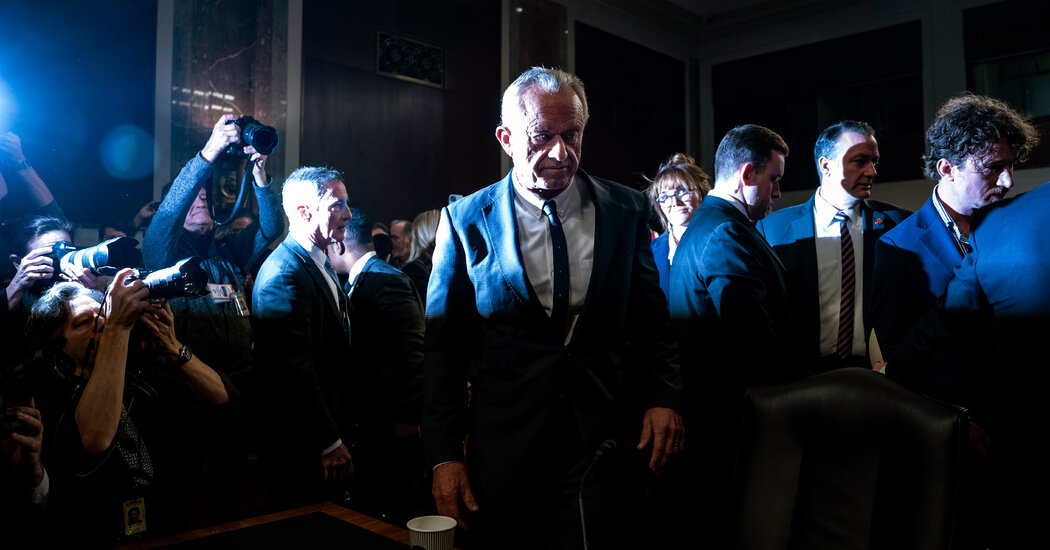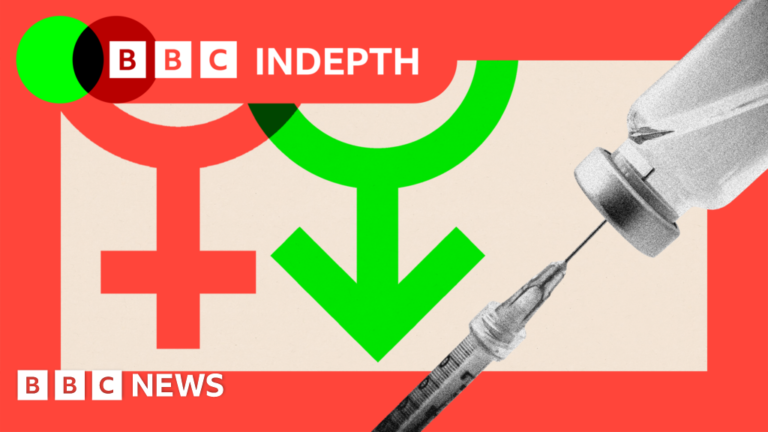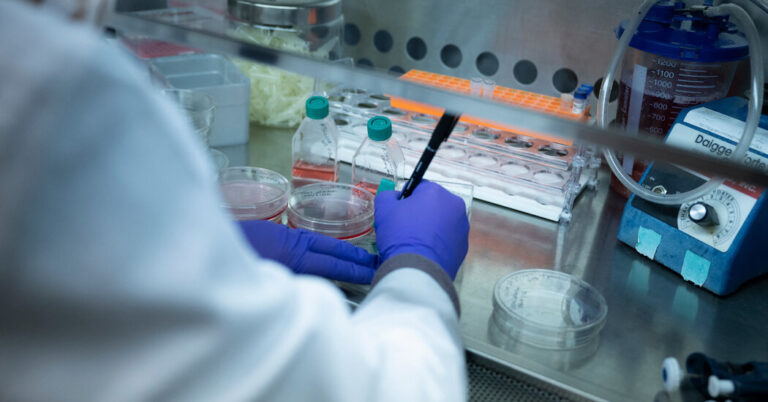Robert F. Kennedy Jr. spent the first day of his back-to-back confirmation hearings deftly avoiding questions about his views on vaccines. On the second day, when a prominent Republican senator insisted there was no link between vaccines and autism, Mr. Kennedy shot back that a new study “showed the opposite.”
“I just want to follow the science,” Mr. Kennedy declared.
Following the science has been a familiar refrain for Mr. Kennedy, whose confirmation as health secretary appears all but assured in a vote expected Thursday. But the exchange in the Senate raises questions about just what type of science Mr. Kennedy is consulting. It foreshadows how, if confirmed, Mr. Kennedy could continue to sow doubts about vaccines.
Academics have pounced on the study that Mr. Kennedy cited during the hearing, shredding it as methodologically faulty and biased. The study emanated from a network of vaccine skeptics who share some of Mr. Kennedy’s views — an ecosystem that includes the author of the study, the editor of the journal that published it, and the advocacy group that financed it.
Dr. Mawson, an epidemiologist, said he first met Mr. Kennedy at an autism conference in 2017. Mr. Kennedy cites Dr. Mawson’s research 33 times in his 2023 book, “Vax-Unvax: Let the Science Speak.”
His study was rejected “without explanation” by several mainstream medical journals, Dr. Mawson said. So he turned for advice to Andrew Wakefield, the author of the 1998 study, now retracted, that sparked the initial furor over vaccines and autism. Mr. Wakefield encouraged him to submit the study to a new journal called Science, Public Health Policy and the Law.
That publication is led by some notable vaccine critics, including three who headlined a Washington rally in 2022 with Mr. Kennedy to protest Covid vaccine mandates.
As the nation’s health secretary, Mr. Kennedy “would have wide powers to advance his favored research studies, publications, or scientific data,” according to Lawrence O. Gostin, a public health law expert at Georgetown University. Mr. Kennedy’s critics fear that the public will have neither the time nor the training to sort through a war that seems to pit one study against another, and that the result will be a rapid decline in confidence in vaccines.
“The Mawson paper epitomizes Kennedy’s consistent inability to distinguish junk science from reliable information,” said Dr. John P. Moore, professor of microbiology and immunology at Weill Cornell Medical College, who said that study and some of the others Mr. Kennedy has cited in the past are published by “fringe journals.”
Mr. Kennedy has said that he is not anti-vaccine, but rather in favor of vaccine safety.
“I support the measles vaccine. I support the polio vaccine,” Mr. Kennedy said on the first day of his confirmation hearings. “I will do nothing as H.H.S. secretary that makes it difficult or discourages people from taking it.”
Mr. Kennedy’s insistence that more research is necessary when it comes to vaccine safety has drawn support from some Republicans, who say they welcome his skepticism.
“I don’t understand why my colleagues all of sudden say we can’t question science,” Senator Markwayne Mullin, Republican of Oklahoma, said during one of Mr. Kennedy’s hearings. He added, “When you start looking at the rise of autism, why wouldn’t we be looking at everything?”
But Michael T. Osterholm, an epidemiologist at the University of Minnesota who has advised administrations of both parties, said Mr. Kennedy’s demands for additional data go too far when they concern vaccines and autism. Mainstream scientists say the issue is settled.
The study by Dr. Mawson that Mr. Kennedy cited at the hearing focused on about 47,000 children enrolled in Florida Medicaid from 1999 to 2011 and looked at billing data to determine their vaccination status.
The study found very few billing records for unvaccinated children with autism — eight who were born prematurely and 54 overall. It concluded that vaccination was significantly associated with higher rates of neurodevelopmental disorders, including autism, particularly in infants who were born prematurely.
By contrast, large-scale studies in respected medical journals, including an analysis of five studies involving more than 1.2 million children, have found no association between vaccines and autism.
Source link




